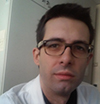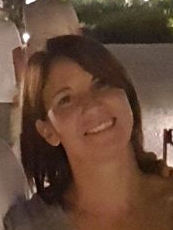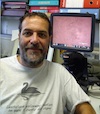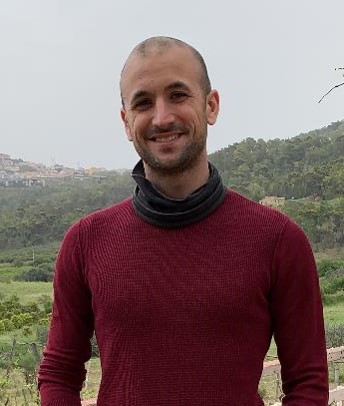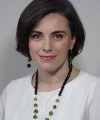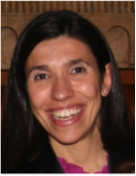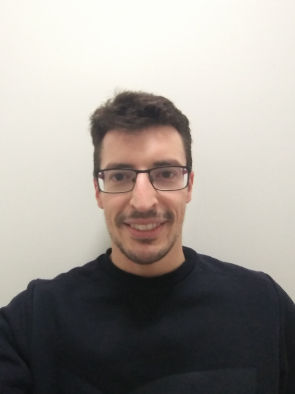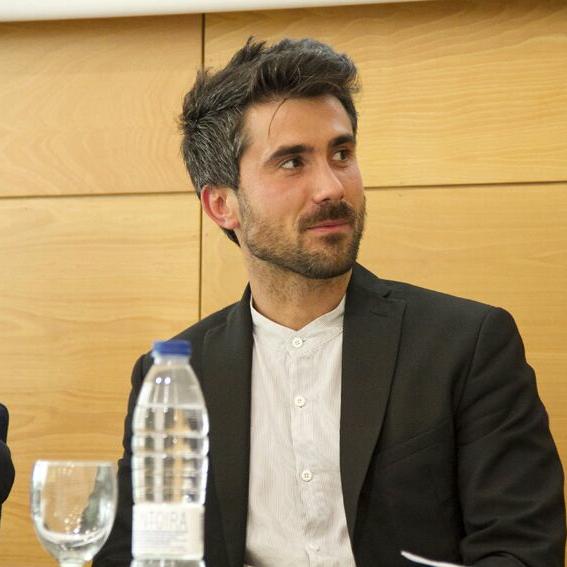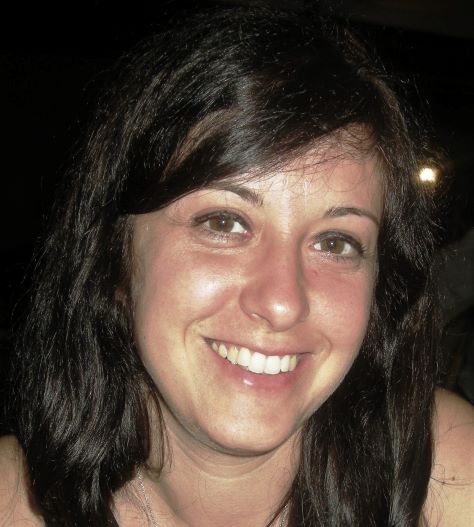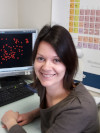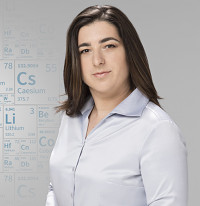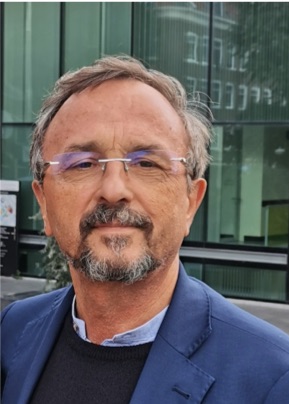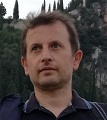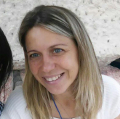Studying at the University of Verona
Here you can find information on the organisational aspects of the Programme, lecture timetables, learning activities and useful contact details for your time at the University, from enrolment to graduation.
Academic calendar
The academic calendar shows the deadlines and scheduled events that are relevant to students, teaching and technical-administrative staff of the University. Public holidays and University closures are also indicated. The academic year normally begins on 1 October each year and ends on 30 September of the following year.
Course calendar
The Academic Calendar sets out the degree programme lecture and exam timetables, as well as the relevant university closure dates..
| Period | From | To |
|---|---|---|
| Primo semestre | Oct 4, 2021 | Jan 28, 2022 |
| Secondo semestre | Mar 7, 2022 | Jun 10, 2022 |
| Session | From | To |
|---|---|---|
| Sessione invernale d'esame | Jan 31, 2022 | Mar 4, 2022 |
| Sessione estiva d'esame | Jun 13, 2022 | Jul 29, 2022 |
| Sessione autunnale d'esame | Sep 1, 2022 | Sep 30, 2022 |
| Session | From | To |
|---|---|---|
| Sessione estiva | Jul 14, 2022 | Jul 14, 2022 |
| Sessione autunnale | Oct 10, 2022 | Oct 10, 2022 |
| Sessione autunnale - dicembre | Dec 5, 2022 | Dec 5, 2022 |
| Sessione invernale | Mar 8, 2023 | Mar 8, 2023 |
| Period | From | To |
|---|---|---|
| Festa di Tutti i Santi | Nov 1, 2021 | Nov 1, 2021 |
| Festa dell'Immacolata Concezione | Dec 8, 2021 | Dec 8, 2021 |
| Festività natalizie | Dec 24, 2021 | Jan 2, 2022 |
| Festa dell'Epifania | Jan 6, 2022 | Jan 7, 2022 |
| Festività pasquali | Apr 15, 2022 | Apr 19, 2022 |
| Festa della Liberazione | Apr 25, 2022 | Apr 25, 2022 |
| Festività Santo Patrono di Verona | May 21, 2022 | May 21, 2022 |
| Festa della Repubblica | Jun 2, 2022 | Jun 2, 2022 |
| Chiusura estiva | Aug 15, 2022 | Aug 20, 2022 |
Exam calendar
Exam dates and rounds are managed by the relevant Science and Engineering Teaching and Student Services Unit.
To view all the exam sessions available, please use the Exam dashboard on ESSE3.
If you forgot your login details or have problems logging in, please contact the relevant IT HelpDesk, or check the login details recovery web page.
Should you have any doubts or questions, please check the Enrollment FAQs
Academic staff
 elisa.artegiani@univr.it
elisa.artegiani@univr.it
 chiara.nardon@univr.it
chiara.nardon@univr.it
 mimimorena.seggio@univr.it
mimimorena.seggio@univr.it
Study Plan
The Study Plan includes all modules, teaching and learning activities that each student will need to undertake during their time at the University.
Please select your Study Plan based on your enrollment year.
1° Year
| Modules | Credits | TAF | SSD |
|---|
2° Year activated in the A.Y. 2022/2023
| Modules | Credits | TAF | SSD |
|---|
3° Year activated in the A.Y. 2023/2024
| Modules | Credits | TAF | SSD |
|---|
| Modules | Credits | TAF | SSD |
|---|
| Modules | Credits | TAF | SSD |
|---|
| Modules | Credits | TAF | SSD |
|---|
Legend | Type of training activity (TTA)
TAF (Type of Educational Activity) All courses and activities are classified into different types of educational activities, indicated by a letter.
Biochemistry and analytical biochemistry - BIOCHIMICA (2022/2023)
Teaching code
4S02696
Teacher
Credits
8
Also offered in courses:
- Introduction to biochemistry of the course Bachelor's degree in Bioinformatics
Language
Italian
Scientific Disciplinary Sector (SSD)
BIO/10 - BIOCHEMISTRY
Period
Semester 1 dal Oct 3, 2022 al Jan 27, 2023.
To show the organization of the course that includes this module, follow this link: Course organization
Program
The properties that characterize living systems
Biological molecules: Hierarchy among biological molecules: simple molecules as units of complex structures
Water, pH and ionic balances
Amino acids
Acid-base properties of amino acids.
Proteins: biological functions and primary structure
Peptide bond. Architecture of protein molecules
The three-dimensional structure of proteins:
The secondary structure: description of helices and folded sheets. Ramachandran's graphs
Globular proteins: tertiary structure and functional diversity
Folding models. Factors determining the secondary and tertiary structure Information and thermodynamics of the survey.
Conformational diseases.
Quaternary structure of proteins
Lipids and membranes: Fatty acids. Triacylglycerols.
Membranes: Fluid mosaic model. Membrane transport
Nucleotides and nucleic acids. DNA and RNA. Properties of nucleotides. Stability and formation of the phosphodiester bond. DNA denaturation and renaturation.
Enzymes: catalytic power, specificity and regulation.
Enzymatic kinetics: Free energy of activation and action of catalysts.
The Michaelis-Menten equation. Steady state assumption. The kinetic parameters. Linear graphic methods.
Enzymatic inhibition: irreversible and reversible. Competitive and non-competitive.
Control mechanisms of enzymatic activity.
Oxygen transport and storage: the role of hemoglobin and myoglobin.
Structure-function relationship of Mb and Hb
Hemoglobin: cooperative binding and allosteria. Models for the transition to allosteria in hemoglobin: the symmetrical model and the sequential model. Homotropic and heterotropic effectors.
Bioenergetics. Basic thermodynamic concepts.
Entropy and free energy. The course of a reaction, the variation of standard free energy. Effect of pH and cancentration on standard free energies.
The importance of coupled processes in living systems.
ATP and high-energy compounds: group transfer potential. The energy charge.
The metabolism.
The central metabolic pathways and energy metabolism. Existence of independent degradative and biosynthetic pathways. Oxidations as a source of metabolic energy. Main metabolism control mechanisms.
Glycolysis: General aspects. The importance of coupled reactions in glycolysis. reactions of glycolysis.
The metabolic fates of NADH and pyruvate
The cycle of tricarboxylic acids: The connection phase: the oxidative decarboxylation of pyruvate. The reactions of the cycle. The cycle of TCAs as a source of intermediates for the biosynthetic pathways. Anaplerotic reactions.
Electron transport and oxidative phosphorylation: Reduction potentials. The complexes of the electron transport chain.
The thermodynamic approach to the chemoosmotic coupling hypothesis. ATP synthase. Shuttle systems for the transport of cytosolic NADH into mitochondria.
Gluconeogenesis, glycogen metabolism and hormonal regulation. Hormones and second messengers: cAMP and G proteins.Mechanism of action of steroid hormones.
The beta-oxidation of fatty acids with an equal number of saturated C atoms.
The pentose phosphate pathway: reactions and control.
Nitrogen metabolism: Transamination reactions; Fate of the carbonaceous skeleton of amino acids; fate of the amino group; urea cycle.
Bibliography
Didactic methods
Classroom lessons with the visual support of power-point slides. Students are provided with the teaching material for each lesson in advance
Learning assessment procedures
The objective of the exam is to verify the level of knowledge and depth of the topics of the course program and the reasoning ability developed by the student. The evaluation is expressed in thirtieths. With the exception of students who have difficulty, the exam consists of an oral test. The grade represents the weighted average between the grade obtained in analytical biochemistry and that obtained in biochemistry
Evaluation criteria
level of knowledge and depth of the topics of the course program and reasoning skills developed by the student
Exam language
Italiano
Type D and Type F activities
Le attività formative di tipologia D sono a scelta dello studente, quelle di tipologia F sono ulteriori conoscenze utili all’inserimento nel mondo del lavoro (tirocini, competenze trasversali, project works, ecc.). In base al Regolamento Didattico del Corso, alcune attività possono essere scelte e inserite autonomamente a libretto, altre devono essere approvate da apposita commissione per verificarne la coerenza con il piano di studio. Le attività formative di tipologia D o F possono essere ricoperte dalle seguenti attività.
1. Insegnamenti impartiti presso l'Università di Verona
Comprendono gli insegnamenti sotto riportati e/o nel Catalogo degli insegnamenti (che può essere filtrato anche per lingua di erogazione tramite la Ricerca avanzata).
Modalità di inserimento a libretto: se l'insegnamento è compreso tra quelli sottoelencati, lo studente può inserirlo autonomamente durante il periodo in cui il piano di studi è aperto; in caso contrario, lo studente deve fare richiesta alla Segreteria, inviando a carriere.scienze@ateneo.univr.it il modulo nel periodo indicato.
2. Attestato o equipollenza linguistica CLA
Oltre a quelle richieste dal piano di studi, per gli immatricolati dall'A.A. 2021/2022 vengono riconosciute:
- Lingua inglese: vengono riconosciuti 3 CFU per ogni livello di competenza superiore a quello richiesto dal corso di studio (se non già riconosciuto nel ciclo di studi precedente).
- Altre lingue e italiano per stranieri: vengono riconosciuti 3 CFU per ogni livello di competenza a partire da A2 (se non già riconosciuto nel ciclo di studi precedente).
Tali cfu saranno riconosciuti, fino ad un massimo di 6 cfu complessivi, di tipologia F se il piano didattico lo consente, oppure di tipologia D. Ulteriori crediti a scelta per conoscenze linguistiche potranno essere riconosciuti solo se coerenti con il progetto formativo dello studente e se adeguatamente motivati.
Gli immatricolati fino all'A.A. 2020/2021 devono consultare le informazioni che si trovano qui.
Modalità di inserimento a libretto: richiedere l’attestato o l'equipollenza al CLA e inviarlo alla Segreteria Studenti - Carriere per l’inserimento dell’esame in carriera, tramite mail: carriere.scienze@ateneo.univr.it
3. Competenze trasversali
Scopri i percorsi formativi promossi dal TALC - Teaching and learning center dell'Ateneo, destinati agli studenti regolarmente iscritti all'anno accademico di erogazione del corso https://talc.univr.it/it/competenze-trasversali
Modalità di inserimento a libretto: non è previsto l'inserimento dell'insegnamento nel piano di studi. Solo in seguito all'ottenimento dell'Open Badge verranno automaticamente convalidati i CFU a libretto. La registrazione dei CFU in carriera non è istantanea, ma ci saranno da attendere dei tempi tecnici.
4. Periodo di stage/tirocinio
Oltre ai CFU previsti dal piano di studi (verificare attentamente quanto indicato sul Regolamento Didattico): qui informazioni su come attivare lo stage.
Verificare nel regolamento quali attività possono essere di tipologia D e quali di tipologia F.
Insegnamenti e altre attività che si possono inserire autonomamente a libretto
| years | Modules | TAF | Teacher |
|---|---|---|---|
| 3° | LaTeX Language | D |
Enrico Gregorio
(Coordinator)
|
| 3° | History and Didactics of Geology | D |
Guido Gonzato
(Coordinator)
|
| years | Modules | TAF | Teacher | |
|---|---|---|---|---|
| 1° | Subject requirements: basic mathematics and physics | D | Not yet assigned | |
| 3° | Python programming language | D |
Giulio Mazzi
(Coordinator)
|
|
Career prospects
Module/Programme news
News for students
There you will find information, resources and services useful during your time at the University (Student’s exam record, your study plan on ESSE3, Distance Learning courses, university email account, office forms, administrative procedures, etc.). You can log into MyUnivr with your GIA login details: only in this way will you be able to receive notification of all the notices from your teachers and your secretariat via email and soon also via the Univr app.
Graduation
List of theses and work experience proposals
| theses proposals | Research area |
|---|---|
| Studio delle proprietà di luminescenza di lantanidi in matrici proteiche | Synthetic Chemistry and Materials: Materials synthesis, structure-properties relations, functional and advanced materials, molecular architecture, organic chemistry - Colloid chemistry |
| Multifunctional organic-inorganic hybrid nanomaterials for applications in Biotechnology and Green Chemistry | Synthetic Chemistry and Materials: Materials synthesis, structure-properties relations, functional and advanced materials, molecular architecture, organic chemistry - New materials: oxides, alloys, composite, organic-inorganic hybrid, nanoparticles |
| Dinamiche della metilazione del DNA e loro contributo durante il processo di maturazione della bacca di vite. | Various topics |
| Risposte trascrittomiche a sollecitazioni ambientali in vite | Various topics |
| Studio delle basi genomico-funzionali del processo di embriogenesi somatica in vite | Various topics |
Attendance
As stated in the Teaching Regulations for the A.Y. 2022/2023, attendance is not mandatory. However, professors may require students to attend lectures for a minimum of hours in order to be able to take the module exam, in which case the methods that will be used to check attendance will be explained at the beginning of the module.


 +39 045 802 7949
+39 045 802 7949

